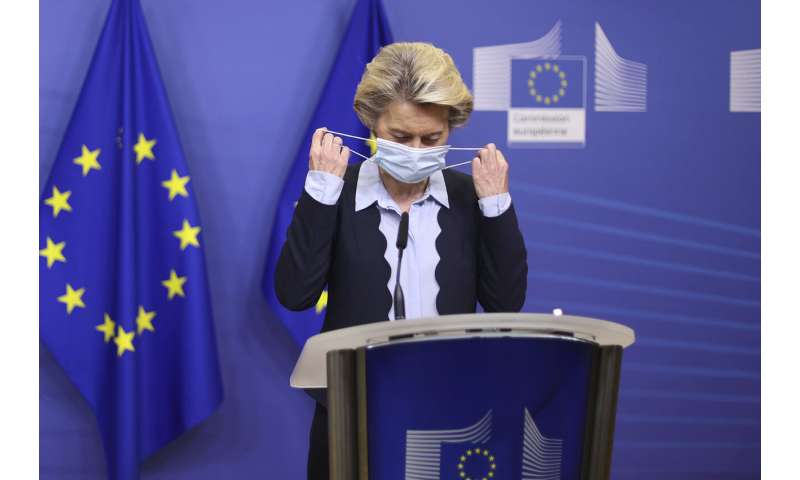EU Commission recommends wide use of rapid COVID-19 tests

The European Union’s executive arm asked member nations Wednesday to generalize the use of rapid antigen tests as winter approaches and Europe struggles to contain a second wave of coronavirus infections.
Antigen tests are less reliable than the standard PCR coronavirus tests, but they cost less and help track-and-tracing efforts due to producing results more quickly.
In its non-binding recommendation, the European Commission encouraged the 27 EU countries to use a common set of COVID-19 tests, a move aimed at slowing infections while facilitating cross-border travel during the pandemic. The hard-hit aviation industry has been pushing for the implementation of rapid tests for air passengers to reduce the need for post-arrival quarantines and to give airlines a boost.
“To slow down the spread of coronavirus, we need to scale up testing,” European Commission President Ursula von der Leyen said.
The commission said it is allocating 100 million euros ($119 million) to purchase rapid antigen tests and to deliver them to EU member states. In addition, it plans to allocate 35.5 million euros ($42 million) to the International Federation of Red Cross and Red Crescent Societies for staff training and equipping the humanitarian network’s testing teams.
The European Commission said rapid tests should be used in situations where fast detection is needed to manage an outbreak or for the regular surveillance of high-risk groups and locations, such as medical personnel and in care homes. The commission also recommended the use of the tests for the purpose of triaging patients at healthcare facilities.
When PCR tests are not sufficiently available in areas where the proportion of positive cases is greater or equal to 10%, the rapid tests should be used to test people with COVID-19 symptoms, the commission said. They also could be used in locations with a lower proportion of positive cases as part of contact-tracing strategies, it said..
EU leaders are expected to discuss the recommendations during a Thursday evening video conference.
Source: Read Full Article



